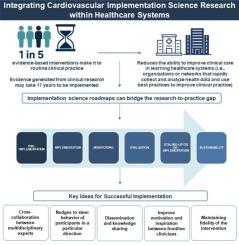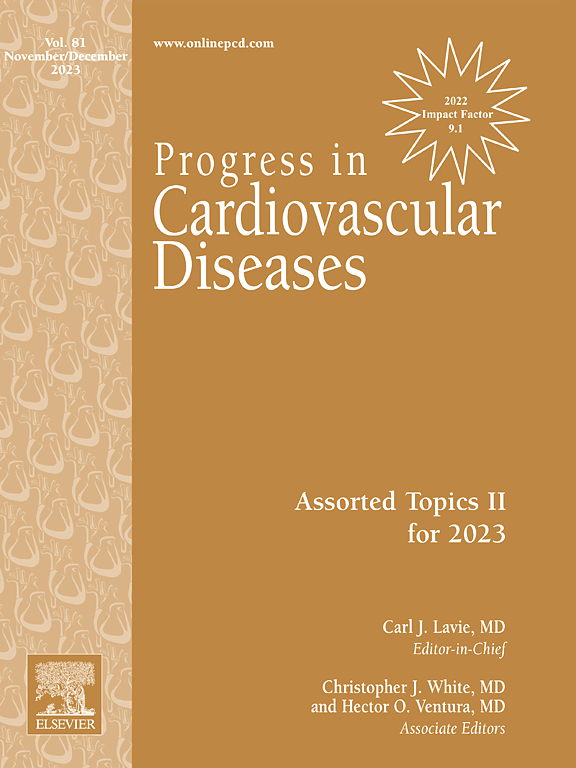在医疗保健系统中整合心血管实施科学研究。
IF 7.6
2区 医学
Q1 CARDIAC & CARDIOVASCULAR SYSTEMS
引用次数: 0
摘要
只有五分之一的循证干预措施能够进入常规临床实践,临床研究产生的证据可能需要17年才能得到实施。这意味着失去了改善卫生保健系统临床护理的机会。实施科学是指研究方法,以促进采用和整合循证实践、干预措施和政策到现实世界的临床环境中,以积极影响人口健康。因此,实施路线图对于学习医疗保健系统(LHS)至关重要,以弥合研究与实践之间的差距,特别是对于心血管疾病,这仍然是美国死亡的主要原因。存在各种实施模型,所有这些模型都需要对有效的医疗保健系统整合和优化的关键实施阶段(实施前、实施、监督实施、评估、维持、扩大或取消实施)有透彻的了解。本综述旨在呼吁参与心血管实施科学的大规模LHS,并通过总结各种实施科学模型、突出关键实施阶段和讨论改进过程的成功举措提供路线图。我们还评估了与实施科学相关的挑战,并提供了可能的解决方案,以改善现实世界临床环境中的证据翻译。本文章由计算机程序翻译,如有差异,请以英文原文为准。

Integrating cardiovascular implementation science research within healthcare systems
Only 1 in 5 evidence-based interventions make it to routine clinical practice and the evidence generated from clinical research may take 17 years to be implemented. This represents a lost opportunity to improve clinical care in healthcare systems. Implementation science refers to the study of methods to promote the adoption and integration of evidence-based practices, interventions, and policies into real-world clinical settings to positively impact population health. Therefore, implementation roadmaps can be crucial for learning healthcare systems (LHS) to bridge the research-to-practice gap, particularly for cardiovascular disease which remains the leading cause of death in the United States. Implementation models exist, all of which require a thorough understanding of the key phases of implementation for effective healthcare system incorporation and optimization (pre-implementation, implementation, monitoring the implementation, evaluation, sustaining, and scaling-up or de-implementation). This review serves as a call-to-action for involvement of large-scale LHS for cardiovascular implementation science, and provides a roadmap by summarizing various implementation science models, highlighting key implementation phases and discussing successful initiatives to improve the process. We also assess challenges associated with implementation science and provide possible solutions to improve translation of evidence in real-world clinical settings.
求助全文
通过发布文献求助,成功后即可免费获取论文全文。
去求助
来源期刊

Progress in cardiovascular diseases
医学-心血管系统
CiteScore
10.90
自引率
6.60%
发文量
98
审稿时长
7 days
期刊介绍:
Progress in Cardiovascular Diseases provides comprehensive coverage of a single topic related to heart and circulatory disorders in each issue. Some issues include special articles, definitive reviews that capture the state of the art in the management of particular clinical problems in cardiology.
 求助内容:
求助内容: 应助结果提醒方式:
应助结果提醒方式:


